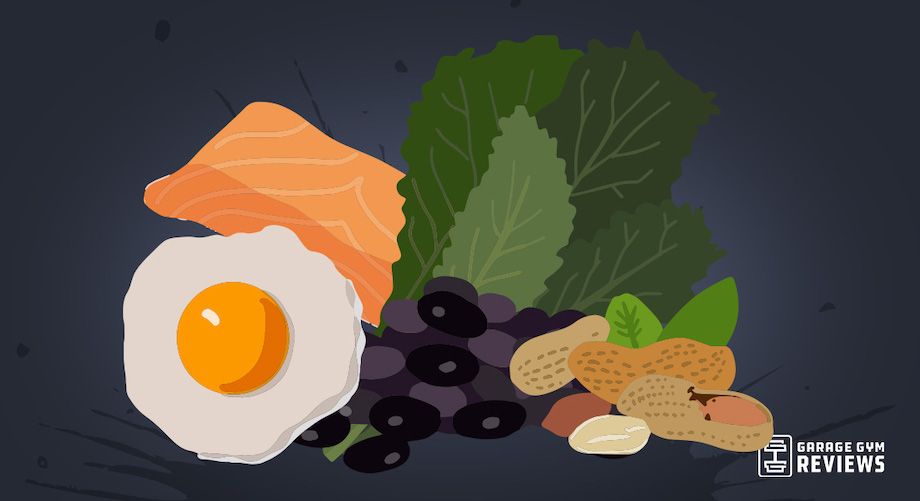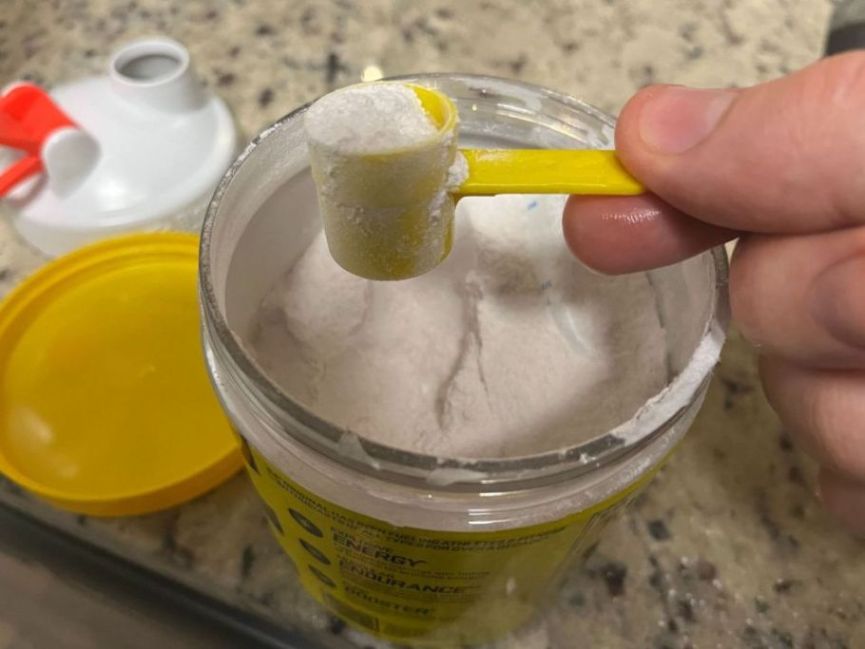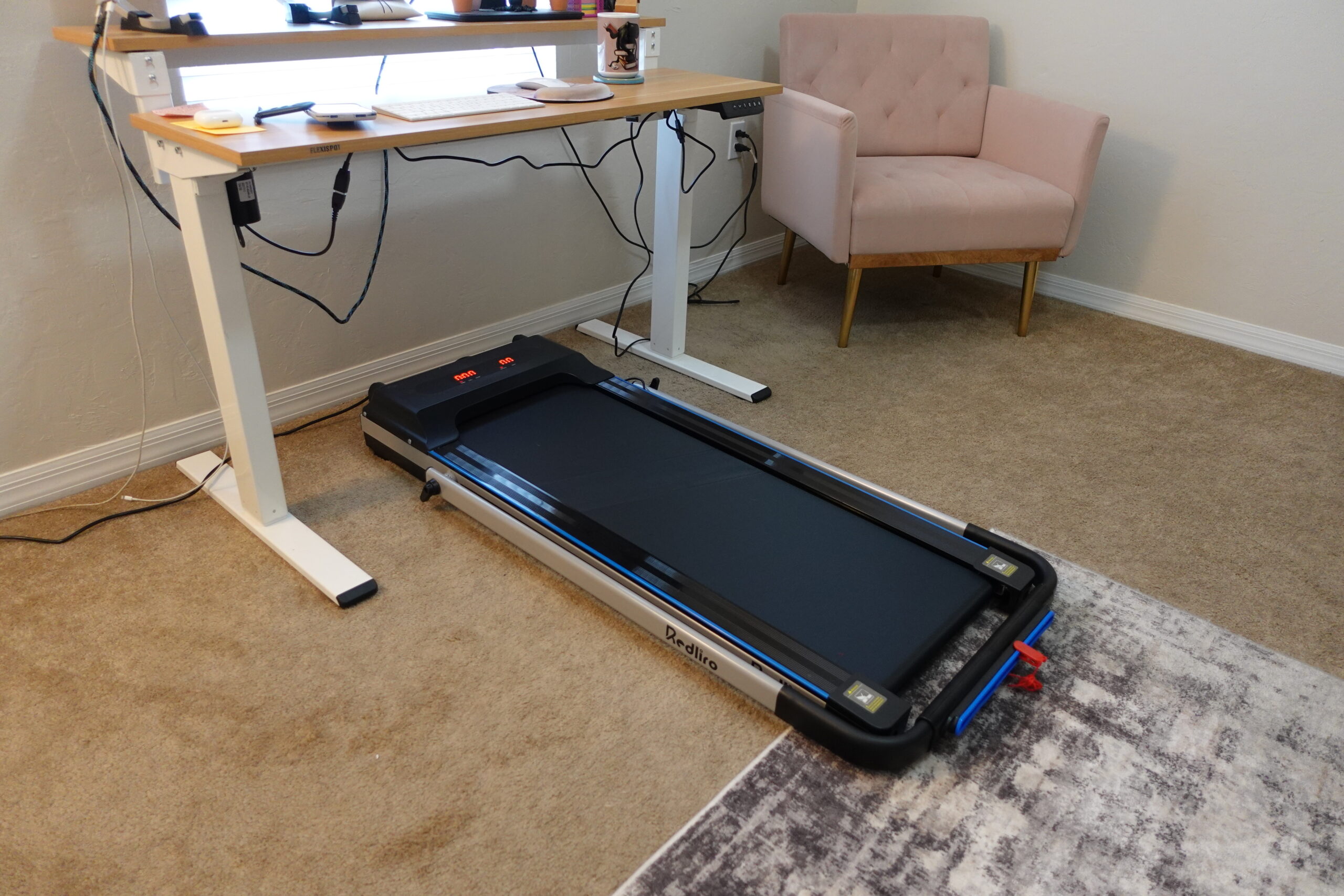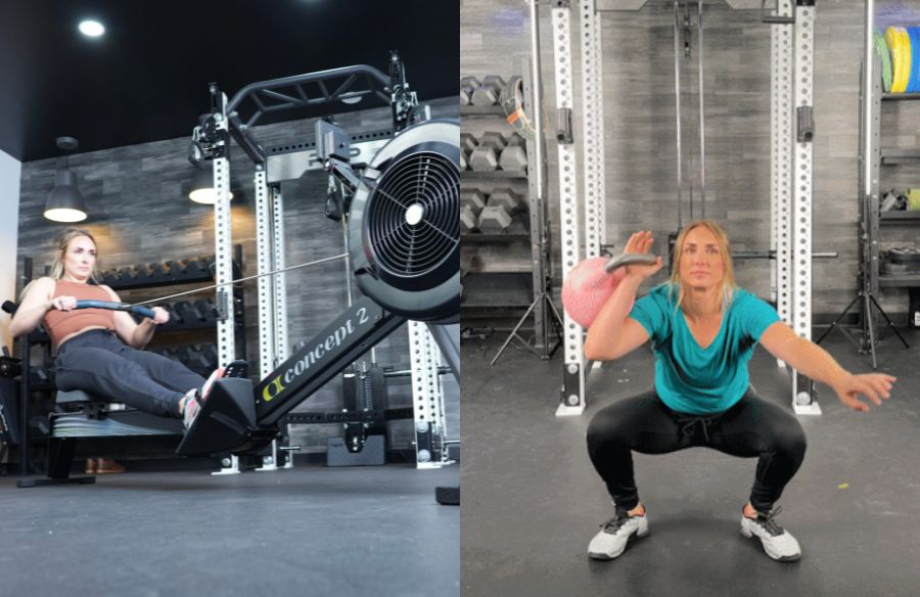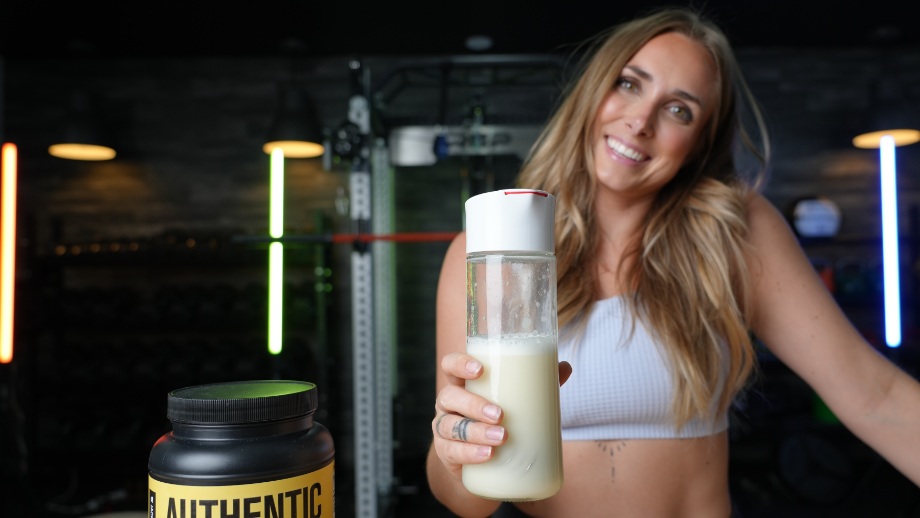Protein is found in many forms and brings a lot to the table. Literally.
Measuring at 4 calories per gram, protein is best known to help build, repair, and maintain muscle mass. However, another one of the benefits of protein is its ability to help you curb hunger by maintaining your satiety level. It is a versatile macronutrient, as there are many sources of protein.
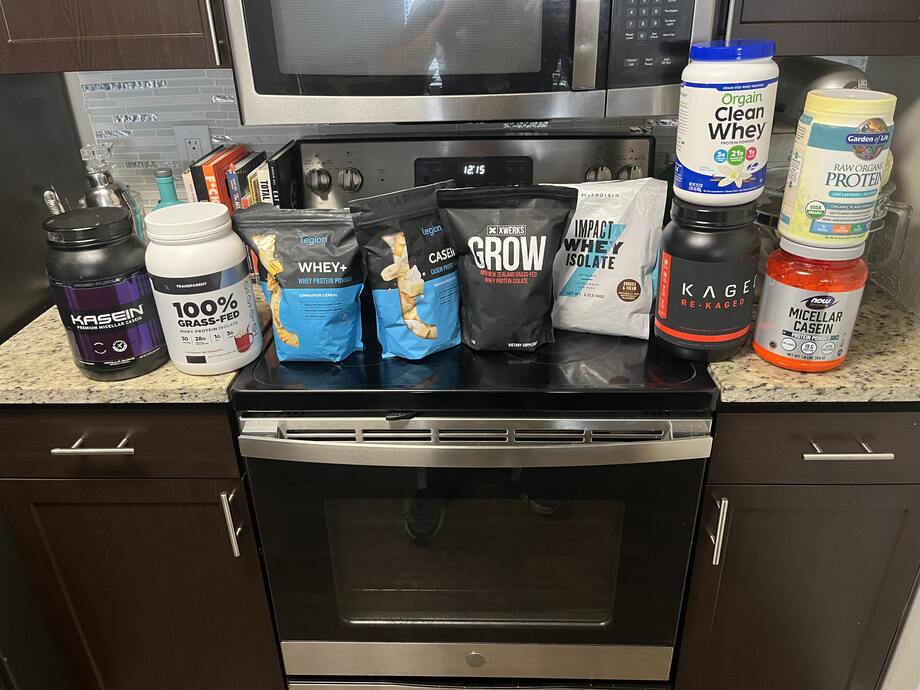
Found in every food group, protein can easily be worked into any dietary lifestyle. Depending on your level of physical activity and goal body weight, your grams of protein consumed daily can be modified to accomplish your fitness goals. The best protein powders make getting enough protein even more convenient.
So, does protein make you gain weight? Let’s talk about it.
Medical disclaimer: This article is intended for educational and informational purposes only. It is not intended as a substitute for medical advice. For health advice, contact a licensed healthcare provider.
Does Protein Make You Gain Weight?
There are three things to consider when determining protein-related body weight gain: daily amount of calories from protein consumed, daily physical activity level (e.g., are you exercising to build muscle or lose fat?), and daily total amount of calories consumed. To determine if protein makes you gain weight, let’s first look at what causes weight gain.
What Causes Weight Gain
Several factors can contribute to weight gain. The most commonly known factors being lack of physical activity and consumption of extra calories. Research as recent as 2020, conducted by the Centers for Disease Control and Prevention (CDC)1, reveals that 25.3% of Americans are inactive outside of their routine job duties. Hand in hand, lack of physical activity and overconsumption of extra calories leads to weight gain.
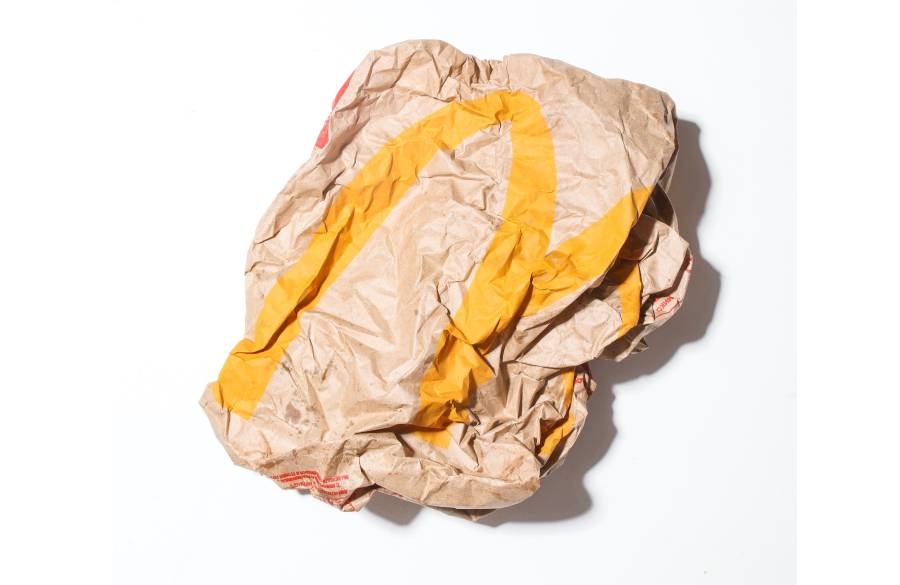
Eating more calories than your body needs or uses during the day can also lead to weight gain. Ghrelin, the hunger hormone, stimulates appetite. During periods of stress2, we are biologically conditioned by ghrelin to treat food as a reward—which can lead to unwanted weight gain, as well.
Also leading to weight gain is the increased consumption and availability of highly processed foods and beverages. Research tells us that highly processed foods3, such as convenience foods that contain a high amount of saturated fat, do not typically have a healthy distribution of macronutrients. These foods are usually low in protein and high in carbs, potentially setting you up for unwanted weight gain.
RELATED: Macros for Weight Loss
How Protein Can Help You Lose Fat and Build Muscle
Protein is one of three macronutrients and its ability to help keep you feeling fuller for longer is well researched⁴. Having a high protein intake mostly from high-protein foods and practicing an active lifestyle can help support your weight loss goals and achieve a healthy weight. Since protein improves sensations of fullness, eating a higher protein diet can potentially lead to decreased body fat mass and increase muscle mass, when paired with exercise.
Protein is composed of tiny building blocks called non-essential and essential amino acids. Our bodies have the amazing ability to maintain homeostasis and preserve muscle mass, so long as we are healthy. As protein digestion occurs, amino acids are further broken down and distributed throughout our body to maintain homeostasis, increase muscle growth, and support muscle repair⁵.
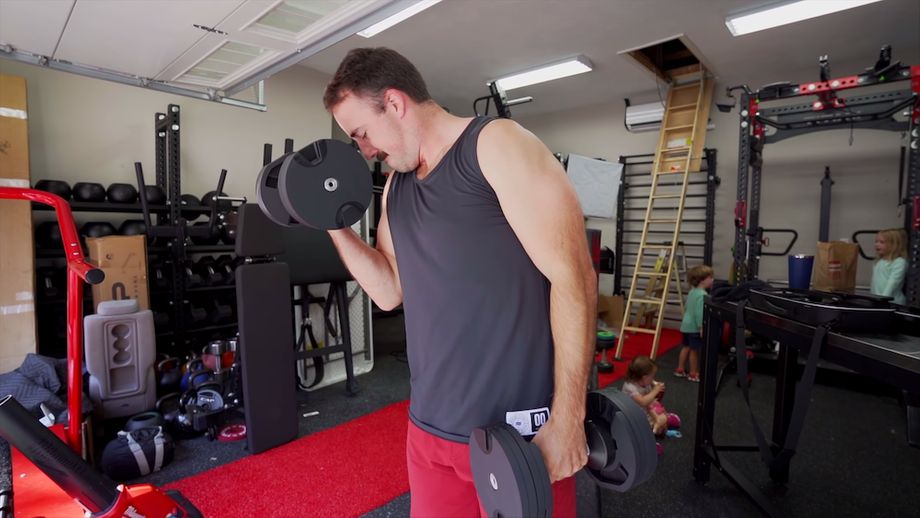
Protein also plays a role in increasing your strength and size⁶. When supplemental protein intake is combined with long-term resistance and strength training, muscle building and overall strength is increased⁶. The main thing to keep in mind is lifestyle compliance. Research tells us that you can maintain or even increase lean muscle mass, while burning body fat, so long as you maintain protein intake that is appropriate for you and your activity level⁷.
RELATED: Benefits of Strength Training
How Much Protein Should You Eat?
The amount of protein you should eat differs from person to person. Recommendations are based on several factors: activity level, health status, age, and sex, to name a few. Talk to your registered dietitian nutritionist if you have specific questions regarding your protein needs. They are nutrition experts trained to individualize your macronutrient needs! You can also check out our article, How Much Protein Do I Need for a more in-depth explanation.
On average, the daily recommended dietary allowance7 (RDA) for protein of a healthy adult can be determined by multiplying 0.8 grams of protein per kilogram of body weight. However, if you are highly active and are routinely working out, you will need more protein intake to not only preserve muscle mass but promote muscle growth. To make sure you are gaining muscle mass8 while maintaining a healthy body weight and exercising regularly, aim for at least 1.6 grams of protein per kilogram of body weight daily.
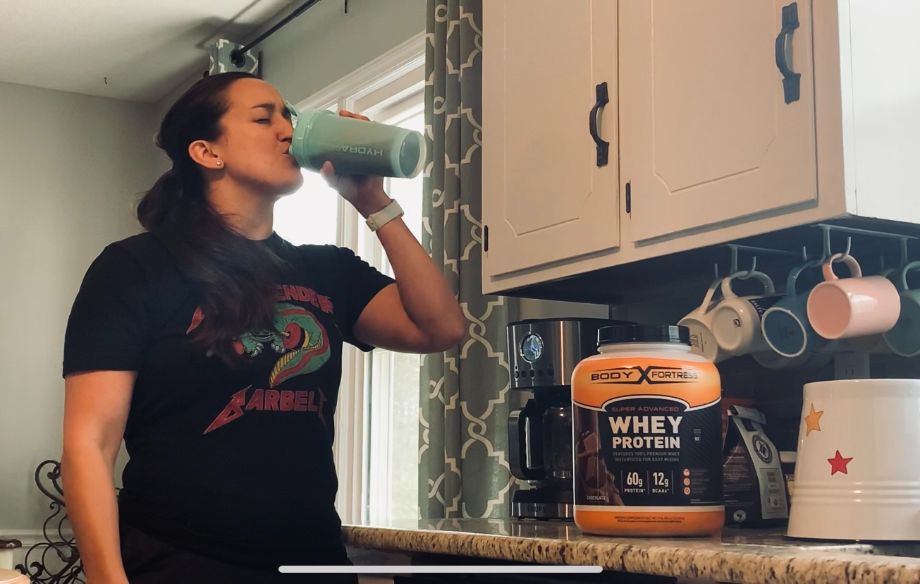
Signs You’re Eating Too Much Protein
It is possible to eat too much protein. Protein, a macronutrient, contributes to your overall calorie count for the day. It is important that you have a healthy distribution of carbohydrates, protein, and fat throughout your day for your body to maintain normal function.
If your daily calorie input is higher than your daily output, then your body will convert protein into adipose tissue. Too much protein can be damaging to your kidneys, as they work overtime to process the excess protein9. Seek out a renal registered dietitian nutritionist who specializes in kidney health if you have questions about eating too much protein.
Types of Protein
You’ll be excited to know that protein sources are found in many forms—foods, beverages, and protein supplements such as whey protein powder! The type and quality of protein sources you are consuming plays an important role in metabolism and therefore lean muscle gain.
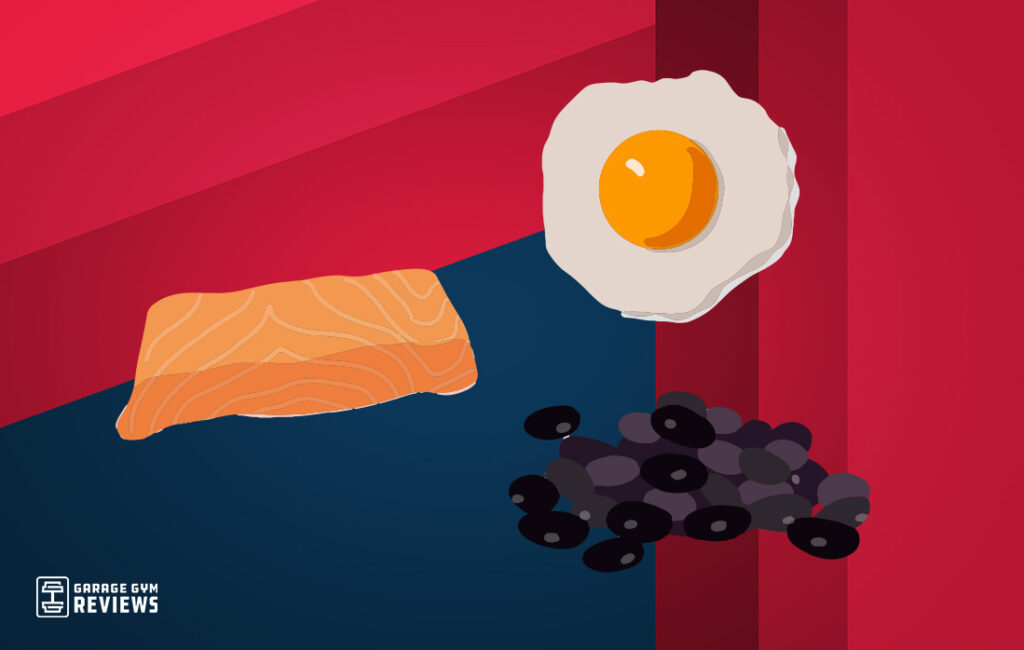
Examples of animal-derived lean protein sources are beef, chicken, turkey, fish, and shellfish. If you are vegan, plant-derived high protein foods include soy, beans, lentils, green peas, whole grain quinoa, whole grain couscous, and nuts. If you are practicing a vegetarian lifestyle, high protein foods such as milk, yogurt, eggs, and cheese are appropriate, in addition to vegan-friendly sources.
Most dairy products actually provide two proteins: casein and whey. Whey digests faster10 than casein (and soy). Its quick digestibility makes amino acids more readily available for your body to convert into lean muscle growth post-workout, prevent body weight gain from body fat, and possibly stimulate weight loss.
A popular way to increase daily protein intake is to mix a protein shake with whey protein powder to assist with post-workout recovery. Non-whey, vegan protein powders are also available.
Final Thoughts: Does Protein Make You Gain Weight?
Does protein make you gain weight? Yes and no. It mostly boils down to input versus output.
Protein may make you gain weight in the form of muscle if you are practicing a high-protein diet that is calorie-controlled and are staying active. Protein may make you gain weight in the form of fat if you are eating a high protein diet without calorie control and only have limited activity.
Daily intake recommendations are best when individualized based on things like age, sex, activity level, and health status, since how much protein you need will differ based on many factors. Protein is versatile and found in many forms of food, as well as beverages, whey protein powder, protein shakes, and other supplements.
Does Protein Make You Gain Weight? FAQ
Does protein make you gain or lose weight?
It can do both. Really look at how much protein you are eating daily, and compare that to your level of daily activity and daily calorie consumption. If you are eating a high protein diet, maintaining an appropriate calorie range, and participating in regular exercise, you are more likely to experience safe weight loss, while building muscle mass. If you are eating a high protein diet, have a high daily caloric intake, and do not participate in regular exercise, your body will likely break down the excess calories from protein into fat. For more information, check out our article about the best protein powder for weight loss.
What are the signs of too much protein?
An easily measurable sign you are eating too much protein is unwanted weight gain. Many people report that they experience indigestion and gastrointestinal discomfort when eating excess calories from protein. Excess protein intake can also lead to constipation and dehydration.
Does protein make you fat if you don’t work out?
The key to appropriate daily protein intake in a healthy individual is based on three things: the amount of protein eaten, the amount of physical activity performed, and the total number of calories eaten. It’s like a math problem. If you eat a high amount of protein, don’t work out, but keep your total daily number of calories within an appropriate range, you are not likely to gain fat mass. However, if you eat a high amount of protein, don’t work out, and exceed the amount of calories recommended daily, a side effect could be gaining body fat.
How much protein per day do you need to gain weight?
If your goal is to gain weight, a high protein diet may help you achieve this. Eating more than 0.8 grams of protein per kilogram of body weight daily can lead to weight gain.
These statements have not been evaluated by the Food and Drug Administration. This product is not intended to diagnose, treat, cure, or prevent any diseases.
References
- Adult physical inactivity prevalence maps by race/ethnicity. Centers for Disease Control and Prevention. https://www.cdc.gov/physicalactivity/data/inactivity-prevalence-maps/index.html. Published February 17, 2022. Accessed March 23, 2023
- Chao, AM, Jastreboff AM, White MA, et al. Stress, cortisol, and other appetite-related hormones: prospective prediction of 6-month changes in food cravings and weight. J Obes. 2017;25:713-720. doi: 10.1002/oby.21790
- Hall KD, Ayuketah A, Brychta R, et al. Ultra-processed diets cause excess calorie intake and weight gain: an inpatient randomized controlled trial of ad libitum food intake. Cell Metab. 2019;30(1):67-77.e3. doi:10.1016/j.cmet.2019.05.008
- Phillips SM, Chevalier S, Leidy HJ. Protein “requirements” beyond the RDA: implications for optimizing health. Appl Physiol Nutr Metab. 2015;41(5): 565-572. doi: 10.1139/apnm-2015-0550
- Mitchell WK, Wilkinson DJ, Phillips BE, et al. Human skeletal muscle protein metabolism responses to amino acid nutrition. Adv Nutr. 2016;7(4): 828-838. doi: 10.3945/an.115.011650
- Pasiakos SM, McLellan TM, Lieberman HR. The effects of protein supplements on muscle mass, strength, and aerobic and anaerobic power in healthy adults: a systematic review. Sports Med. 2015;45(1):111-131. doi:10.1007/s40279-014-0242-2
- National Academies Press. (1989). Protein and Amino Acids. In Recommended dietary allowances 10th edition.
- Schoenfeld BJ, Aragon AA. How much protein can the body use in a single meal for muscle-building? Implications for daily protein distribution. J Int Soc Sports Nutr. 2018;15:1. doi: 10.1186/s12970-018-0215-1
- Ko GJ, Obi Y, Tortorici AR, Kalantar-Zadeh K. Dietary protein intake and chronic kidney disease. Curr Opin Clin Nutr Metab Care. 2017;20(1):77-85. doi:10.1097/MCO.0000000000000342
- Devries MC, Phillips SM. Supplemental protein in support of muscle mass and health: advantage whey. J Food Sci. 2015;80: A8-A15. doi: 10.1111/1750-3841.12802


